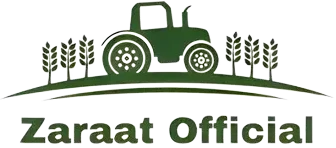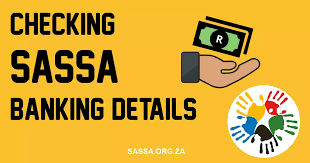Smart Strategies for Women Seeking Financial Independence

Key Takeaways
- Building financial independence requires both strategic planning and sustainable daily habits.
- Women face unique challenges, including wage gaps and career interruptions, making tailored strategies essential.
- Systems like automated savings, diversified investments, and mentorship networks can accelerate financial growth.
- Research shows that community support and education significantly improve long-term money outcomes.
Table of Contents
- Why Financial Independence Matters for Women
- Building a Strong Savings and Budgeting System
- Investing with Confidence: Breaking Barriers
- The Power of Financial Education and Community
- Creating Long-Term Systems for Sustainable Wealth
- Conclusion
Why Financial Independence Matters for Women
Financial independence is not just about wealth — it’s about freedom of choice, resilience in uncertain times, and the ability to live on your own terms. For women, this pursuit carries additional urgency due to systemic challenges such as the gender pay gap, career interruptions related to caregiving, and longer life expectancies. These factors create a financial environment where women must plan proactively to protect and grow their wealth. More than financial security, independence offers peace of mind and empowerment. It allows women to leave toxic workplaces, invest in passion projects, or retire without relying on others. Resources like Dow Janes Reviews resonate strongly with women seeking proven strategies. Through firsthand success stories, women can see how practical systems and planning translate into tangible results. Dow Janes not only teaches strategies but also encourages that independence is achievable with consistency and guidance.
Building a Strong Savings and Budgeting System
Every path toward financial freedom begins with disciplined savings and savvy budgeting. A solid system ensures that money works for you rather than slipping unnoticed. Research from the Consumer Financial Protection Bureau highlights that individuals who automate savings contribute 20% more than those who rely on willpower alone. By setting up automatic transfers into savings or investment accounts, women can progress without constantly rethinking financial decisions. The 50/30/20 framework — allocating 50% of income to needs, 30% to wants, and 20% to savings — is a simple yet powerful. Women can adapt this to their lifestyle by making gradual improvements, such as canceling unused subscriptions, meal prepping to cut dining expenses, or negotiating lower bills. These minor, sustainable adjustments compound into significant long-term results. Dow Janes emphasizes the importance of systems over short-lived motivation. Their approach encourages women to create autopilot savings strategies that balance discipline with flexibility. Women gain confidence and control over their money journey by learning how to set financial boundaries while still enjoying life. This shift turns budgeting from a restrictive chore into a tool for empowerment.
Investing with Confidence: Breaking Barriers
Investing remains one of the most effective ways for women to achieve long-term independence, yet many hesitate due to intimidation or lack of exposure. Historical data shows that when women invest, they often outperform men, thanks to their disciplined approach and focus on steady growth rather than risky speculation. The best way forward for beginners is to start with low-cost index funds, diversified portfolios, and retirement accounts like IRAs or 401(k)s. These vehicles reduce risk, harness compounding growth, and provide a foundation for wealth-building. For those unsure where to begin, robo-advisors and guided platforms make investing more accessible than ever. Dow Janes addresses the fear factor head-on by breaking complex investing strategies into approachable, actionable steps. Their flagship program, the Million Dollar Year, provides a clear roadmap for building confidence in investing, ensuring women understand the process and practice it consistently. By shifting the narrative from intimidation to empowerment, Dow Janes helps women break barriers and take control of wealth creation.
he Power of Financial Education and Community
Knowledge is power, but knowledge paired with community is transformation. Studies from the Brookings Institution show that people achieve higher success rates when working toward goals within peer-based accountability groups. This is especially impactful for women, as community provides encouragement, mentorship, and a safe space to talk about money — a taboo topic. Financial education equips women with the tools to make informed decisions, but learning within a supportive environment accelerates application. Whether it’s an online workshop, group coaching, or community forums, these spaces normalize money conversations and keep women motivated. This is the heart of Dow Janes, which has built a thriving community focused on helping women achieve financial freedom. Their approach blends step-by-step financial education with ongoing peer support, ensuring that knowledge translates into action. Engaging with like-minded women, participants stay accountable, celebrate wins, and overcome setbacks together. This combination of education and community transforms financial independence from a solitary pursuit into a shared journey.
Creating Long-Term Systems for Sustainable Wealth
Short bursts of effort rarely lead to lasting results — the systems behind the scenes create sustainable wealth. Automating savings deposits, setting recurring investment contributions, and scheduling annual financial reviews establish a long-term framework that minimizes reliance on willpower. A National Bureau of Economic Research study found that individuals who automated retirement contributions were 15% more likely to stick to their goals. This shows how system design directly affects outcomes. Pairing automation with protective tools like emergency funds ensures both stability and growth. Dow Janes underscores this principle by teaching women to build systems tailored to their lives — from debt payoff strategies to automated investing and retirement planning. These systems are designed to be flexible, adjusting to life changes while maintaining consistency. Sustainability also requires skill development. The World Economic Forum highlights lifelong learning as a driver of economic resilience. Women who invest in upskilling or leadership development increase their earning potential, directly accelerating wealth-building. By layering education, automation, and protective systems, women can design wealth that sustains them and creates legacies for future generations.
Conclusion
Financial independence for women is not a single milestone but an ongoing journey rooted in systems, knowledge, and support. By building strong savings habits, investing confidently, engaging in education, and joining empowering communities, women can break free from systemic challenges and design a future of choice and stability. Platforms like Dow Janes provide more than just financial strategies — they offer mentorship, accountability, and proof that independence is possible. With the right tools and community, women everywhere can create sustainable wealth that secures freedom for themselves and future generations.

